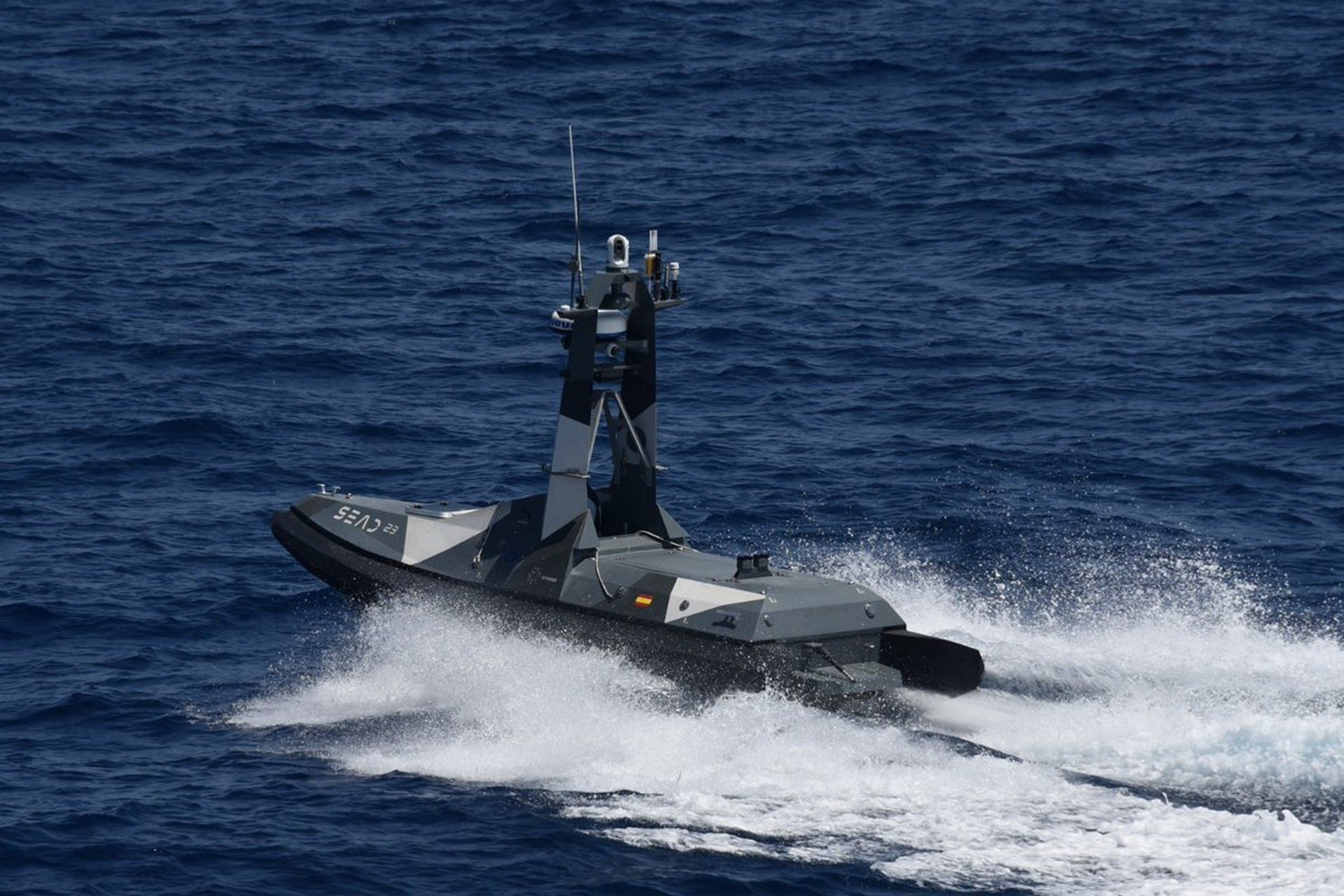Breaking News
REPMUS 24: World's largest international maritime drone exercise kicks off in Portugal.
According to information published by the Portuguese MoD on September 10, 2024, the REPMUS 24 (Robotic Experimentation and Prototyping with Maritime Unmanned Systems) exercise has officially begun in Troia and Sesimbra, with the event set to run until September 27th. This year's iteration, the 14th of its kind, brings together more than 2,000 participants from 30 nation.
Follow Army Recognition on Google News at this link

Spanish SEAD 23 Unmanned Surface Vehicle. (Picture source: Spain MoD)
The REPMUS (Robotic Experimentation and Prototyping using Maritime Unmanned Systems) exercise is a naval event hosted by the Portuguese Navy, in collaboration with NATO and multiple international partners. It takes place annually, with the 2024 iteration being a significant month-long event scheduled for September. This exercise focuses on testing and advancing maritime unmanned systems (UxS) technologies, including aerial, surface, and underwater vehicles, in complex real-world scenarios.
The primary goal of REPMUS is to foster interoperability among NATO and allied navies while developing and refining the use of uncrewed systems in operations such as anti-submarine warfare (ASW), mine countermeasures (MCM), and multi-domain intelligence, surveillance, and reconnaissance (ISR). The exercise provides a platform for NATO nations and partners to experiment with innovative concepts, improving the integration of unmanned technologies with traditional manned assets.
REPMUS 2024 will continue testing NATO’s ASW Barrier concept, a project aimed at deploying a network of autonomous vehicles to detect and track submarine activity. This barrier leverages unmanned systems to extend ISR capabilities and establish a persistent surveillance network across maritime zones. The exercise will feature a large number of autonomous vehicles, including uncrewed air, surface, and underwater vessels, alongside manned naval ships from various nations. The technological focus includes advancing communications protocols and command-and-control structures for seamless integration across domains.
Thales and other defense industry players are actively involved in the exercise, working with platforms like the Royal Navy's XV Patrick Blackett to integrate AI-driven capabilities and autonomous systems into combat scenarios. These efforts are pivotal in driving the shift toward less reliance on human operators for missions like mine detection, while exploring the potential of autonomous systems to eventually surpass manned counterparts in specific tasks.
























